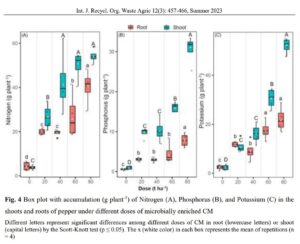Purpose Because of the steep shortage in freshwater supply in the Israeli-occupied West Bank, raw wastewater (RWW) has been widely used to irrigate vegetable crops. This study aims to detect the effects of irrigation with raw wastewater on crops cultivated in Wadi Al-Far’a, Palestine. Method A total of 300 soil, crop, and RWW samples were […]
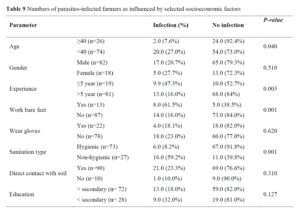
Purpose The current use of pesticides and chemical fertilizers harms the environment, alternative substitutions using organic materials are needed. One of them is utilizing the dairy industry sludge waste to become a Super Liquid Fertilizer (SLF). This study aimed to analyze the nutrient quality of SLF (a dairy industry sludge waste that was added to […]
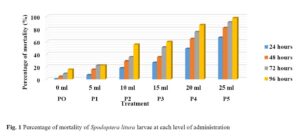
Purpose This study aimed to verify the effects of the application of carnauba waste on the biological attributes, organic carbon content, and hydrothermal regime of soil. Method The experiment was performed in randomized blocks with six treatments and four replicates. The treatments were as follows: (1) NPK (recommended dose of synthetic fertilizers: 100:180:86 kg ha-1 […]
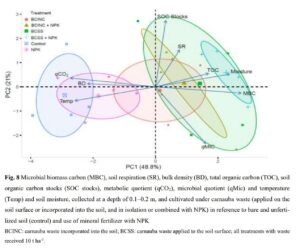
Purpose This study was to obtain suitable methods and the combination of market organic waste to make better organic fertilizer. Method The data were obtained experimentally in the decomposer room. The experimental design was a completely randomized design. The market organic waste consisted of comparing cabbage, banana peduncle, pineapple, added rice straw, and cow manure as bedding. […]
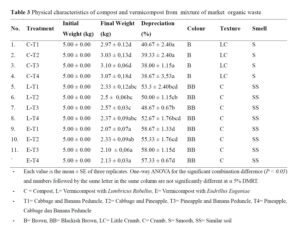
Purpose The aim of this study was to assess the potential of Eisenia fetida (Redworm) in composting different types of waste, namely tea waste (TW), vegetable waste (VW) (leaves of cauliflower), and mixed food waste (MFW). Method The experiment was set up inside the Lab room during the summer. For vermicompost preparation, 27 equal size […]
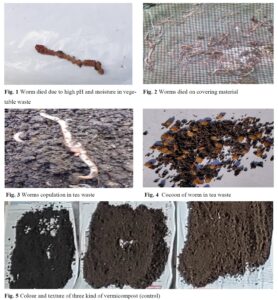
Purpose Agro-industrial residues could be bio transformed to improve crop production and reduce environmental risk. Application of humic substances (HS) extracted from residues could be an alternative fertilization strategy. The objectives were i) to characterize different bio transformed agro-industrial residues (BR) and their HS by combining UV-vis and FT-IR techniques, and ii) to assess the […]
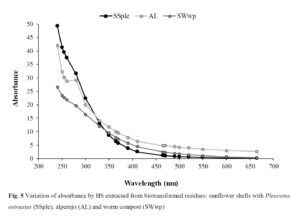
Purpose: A study was conducted to transform bovine blood, a slaughterhouse by-product, into an organic source of nitrogen, which is otherwise disposed of through sewer systems only to pollute the nearby water bodies. Method: The annual blood production in the Khulna City Corporation (KCC) slaughterhouses was estimated, blood samples were collected, and blood meals were […]
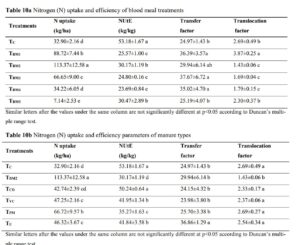
Purpose This study aimed to evaluate the effects of different organic residues and beneficial microorganisms on the growth and yield of pepper (Capsicum baccatum). Method Cattle manure (CM), earthworm humus (EH), and sugarcane filter cake (SFC) were enriched with Beijerinckia indica subsp. indica and Cunninghamella elegans spp. Chemical analysis revealed that CM had the highest […]
